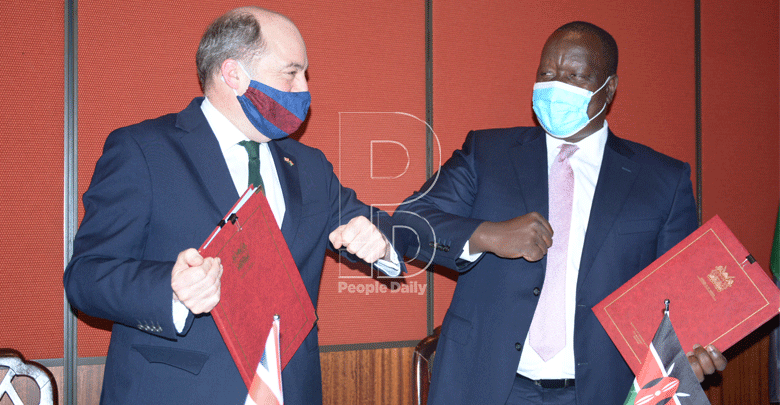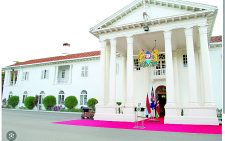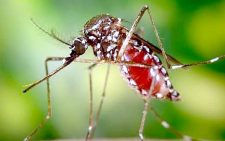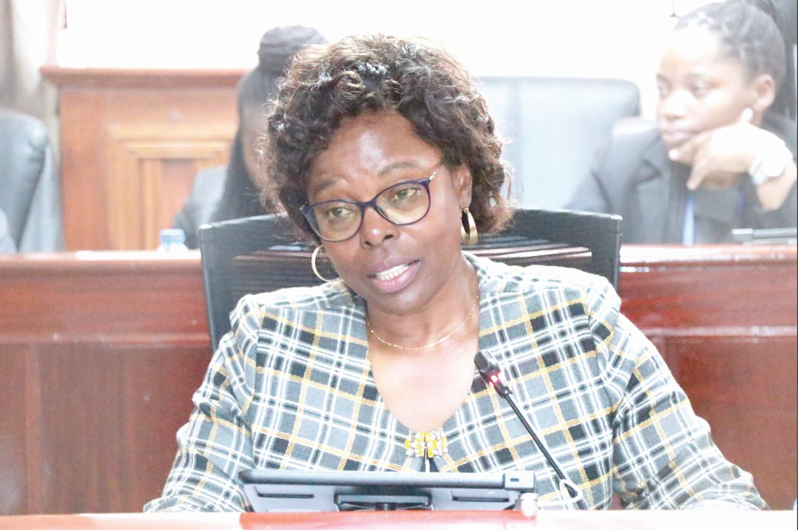War on terror gets boost in refreshed Kenya, UK deal

The fight against terror, violent extremism and organised crime has been boosted following a refreshed partnership between Kenya and the UK.
The Interior Cabinet Secretary Fred Matiang’i and the UK’s Secretary of State for Defence Ben Wallace yesterday signed a renewed pact on the UK-Kenya Security Compact that seeks to enhance coordination and collaboration in tackling al Shabaab and demonstrating joint leadership on security challenges of international significance.
The pact comes just one year after President Uhuru Kenyatta and Prime Minister Boris Johnson launched the UK-Kenya Strategic Partnership in London.
“Kenya has been on the forefront of the global war against terror and it is partnerships like these that make a difference, and the world a safer place to be in,” Matiang’i said.
First pact
“This Security Compact will see both countries strengthen their capacity to respond to various facets of global security challenges in a more formidable manner,” he added.
Wallace, who is on a two-day visit to Kenya, said there are over 200 UK Armed Forces personnel based in the country.
The British Army Training Unit Kenya (Batuk) also continues to support local communities in Isiolo, Laikipia and Samburu.
“Our nations face shared threats, from violent extremism to organised crime.
The security agreement we have signed today will allow us to further deepen our relationship and tackle regional defence issues as ever closer partners,” Wallace said.
The first pact was signed in September 2015 while the second was signed in August 2018.
The 2015 pact has led to the establishment of a counter-IED training centre in Nairobi for regional security forces fighting al Shabaab, the extradition of wanted criminals from the UK to Kenya, and better aviation security.
In March 2019, CS Matiangi and Wallace co-chaired the second-high level UK-Kenya security dialogue on wide ranging issues including working together on community policing, efforts to tackle violent extremism, serious organised crime, cyber security, counter-terrorism and defence partnership.
Later in January last year 2020, they launched the UK-Kenya Strategic Partnership.
Organised crime
The Directorate of Criminal Investigations (DCI) is also, in dealing with serious and organised crime, working closely with the UK especially in advising the public to be more aware as criminals adapt their tactics in the face of Covid-19.
The UK has also partnered with Kenya to establish the National Police Service’s Anti-Human Trafficking and Child Protection Units in Nairobi and Mombasa which are safeguarding vulnerable children.
The UK also delivers virtual mentoring, for Kenya’s anti-corruption Multi-Agency Taskforce, and for the Counter IED Wing at the Humanitarian Peace Support School in Nairobi.
British-built cyber centre in Nairobi will help bring paedophiles, who target and abuse vulnerable children in Kenya, to justice.
The UK has warned that online child sex abuse is a global problem and especially in Kenya.
UK also funds the cyber centre that helps Kenyan detectives identify potential victims, investigate abuse and prosecute abusers.
This builds on existing work by the UK’s National Crime Agency that set up Kenya’s Anti-Human Trafficking and Child Protection Unit (AHTCPU) and train and mentor its staff.
Kenya has witnessed an increase in terror attacks especially in the North Eastern. In one of the latest attacks, terrorists attacked and destroyed a communication mast in Sarman area, Mandera County, leaving many out of reach.












